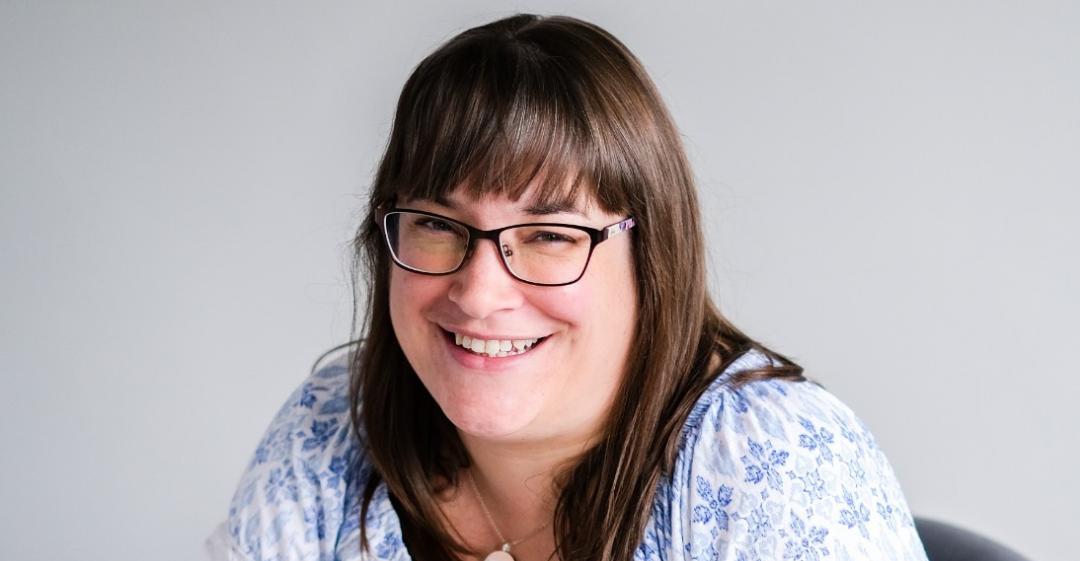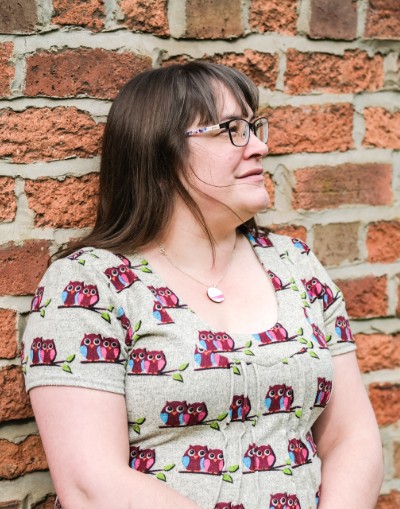“I felt stressed and anxious a lot of the time.”

What work were you doing previously?
I was a secondary school science teacher.
Prior to that I was a research fellow at a prestigious university.
What are you doing now?
I'm a freelance proofreader and editor.
I edit academic journal articles, theses and books, mostly (but not exclusively) for authors who have English as an additional language.
How did you feel in your work before you decided to make the change?
I felt stressed and anxious a lot of the time.
I didn't feel I was up to the job (either research or teaching) despite the qualifications I had behind me. I didn't feel supported by my colleagues; in fact, I felt quite isolated and constantly worried that I'd done something wrong.
I was discouraged with the outcomes of both jobs: the research in terms of the data I obtained, and the teaching in terms of the feedback I received from my mentor and other teaching colleagues.
Why did you change?
I left both teaching and research due to mental health difficulties stemming from a chronic lack of confidence in myself and my abilities.
When was the moment you decided to make the change?
The moment I decided to leave teaching was after my thirteenth observation (in just over a term).
It was quite clear from my first lesson I was not suited to the school I was working in. I had a large amount of naivety about how teaching would be. I struggled massively with classroom management and was also not conveying the subject to the pupils in such a way that they learnt. I had many meetings with various staff members – my head of department was also my mentor – but I didn't feel supported, only undermined.
As this went on and my confidence dropped, teaching and classroom management became harder and harder. I really did want to teach though, so I kept trying. I struggled to implement the feedback and changes suggested to me.
I completed the term and returned after Christmas. I had an observation in the first week, period three on a Friday. At the end of that lesson, my mentor looked at me and shook her head slightly.
I taught periods three and four; then I went home and didn't return. I was signed off sick with stress. Then I resigned.
How did you choose your new career?
After finishing teaching I fell pregnant with my first child (who's now nearly eight).
This helped me decide that I didn't want to return to teaching. When he was about nine months old I went for a number of interviews for various positions, university and public-sector based, and didn't get anywhere. I also really didn't want to work full-time now I had a child.
After a year or so of job hunting and looking after my son, a friend made a chance comment about freelance editing and proofreading. It sounded good but I didn't do anything about it as I couldn't imagine building up a client base, nor indeed even getting my first client.
Then a colleague from my PhD days contacted me on Facebook and asked if I'd proofread his paper. He spoke and wrote English as an additional language and was struggling to get journals to accept his research group's papers due to the English. With my scientific background and eye for detail, and being a native English speaker, I seemed an ideal choice to him.
The rest, as they say, is history. From that one client I've built up my business and have been working as a freelance editor and proofreader for nearly six years. I work from home, during school / nursery hours (I had my second child, a daughter, in 2015) plus evenings and weekends.
It's taken a while to build up business, but now I often point people in the direction of other proofreaders or take on projects a few months in advance.
Are you happy with the change?
Yes, I'm very happy with the change.
Not only does it allow me extensive flexibility with workload and how I conduct the work, but I can also work around children and choose which projects I undertake. I'm not judged. Clients are extremely happy and grateful for my work. I can't imagine going into employment again now.
What do you miss and what don't you miss?
I don't miss the constant checks on performance, the appraisals, the (perhaps only perceived) judgement by some senior colleagues.
I don't miss working for someone and having to justify taking days off if I have a sick child, even if I do make the time up during evenings and weekends.
I do miss having other people around for company, to bounce ideas off and to chat with. I don't see many people on a day-to-day basis. I also miss the security of a wage coming in every month, but I think because I've had gaps in income before it doesn't worry me as much as it might.
How did you go about making the shift?
As I had already resigned from my teaching job and was raising my son, and as the work started gradually with one or two papers, I just assimilated the work into my life as a mum.
I was extremely lucky that we had (and still have) my husband's regular wage. It meant I wasn't under any pressure and I've been able to let my business grow organically. I've taken opportunities as they've come but haven't done much chasing. This is partly luck and partly a choice about how I wanted to conduct my business – I wanted to concentrate on my children while they were small.
What didn't go well? What wrong turns did you take?
I think the mistakes I made (and am still making) are similar to those made by other freelancers.
I've undercharged, not valuing my services highly enough. I've sometimes underestimated the time needed for projects. I've also had a few payment issues, through my own naivety and through feeling bad about chasing invoices (even though I shouldn't).
How did you handle your finances to make your shift possible?
I was extremely lucky to have a husband with a regular wage.
This provided our main income and meant I wasn't under pressure to earn. That said, it wasn't / isn't a big wage and we've racked up quite a bit of debt over the past eight or nine years, through overdrafts and credit cards. A key use of the money I earn is paying that off.
What was the most difficult thing about changing?
The uncertainty in finances has definitely been difficult, plus balancing home and work – that's an ongoing difficulty!
Other than that, as it was a gradual thing that evolved as my children grew, it didn't feel like a big change.
What help did you get? 
As soon as I started freelancing I joined the Society for Editors and Proofreaders, which is a hive of support and guidance.
They run professional development courses and their website is full of useful information, suggested publications and so on. They also have online forums for people to use; the support between editors is amazing. There are also local group meetings – we meet monthly, which allows us to chat, to vent, to support each other, and to arrange things like local training courses.
I've found the HMRC website and webinars helpful for information on self employment, tax and so on.
I've also found the Facebook communities Freelance Heroes, The Freelance Lifestylers, and Doing It For The Kids to be full of knowledgeable and helpful people.
What resources would you recommend to others?
I would recommend joining a professional society relevant to your area and / or the Federation of Small Businesses.
The fees can seem a lot but I think they're worth it.
What have you learnt in the process?
I've learnt a lot about myself, and that I can have confidence in myself.
I've learnt about the numerous people who are pursuing freelance lifestyles across multiple sectors.
I've learnt it is possible to run your own business and do a lot of the admin and tax work yourself. And I've learnt that it's also OK to reach out and employ other people to help. The number of virtual assistants and accountants helping people like me is amazing.
What would you advise others to do in the same situation?
To be mindful of the highs and lows of freelancing, and that the lows don't necessarily mean it's not working out.
Use the support available through Facebook groups, local networking groups, relevant societies, and also friends and family.
And lastly, don't undersell yourself!
To find out more about Rose's services, visit www.readbyrose.co.uk.
What lessons could you take from Rose's story to use in your own career change? Let us know in the comments below.



